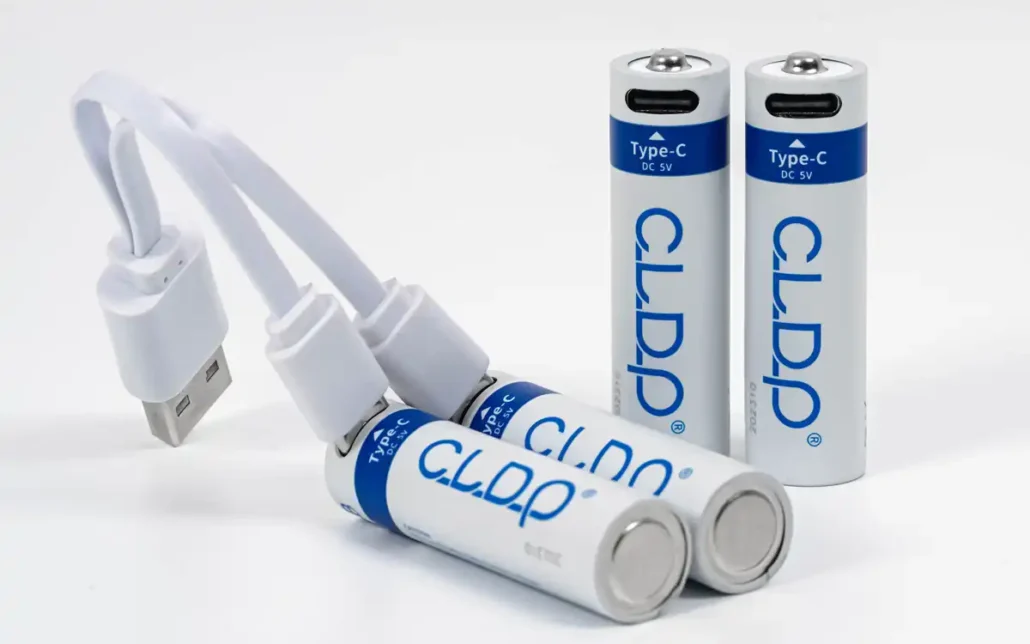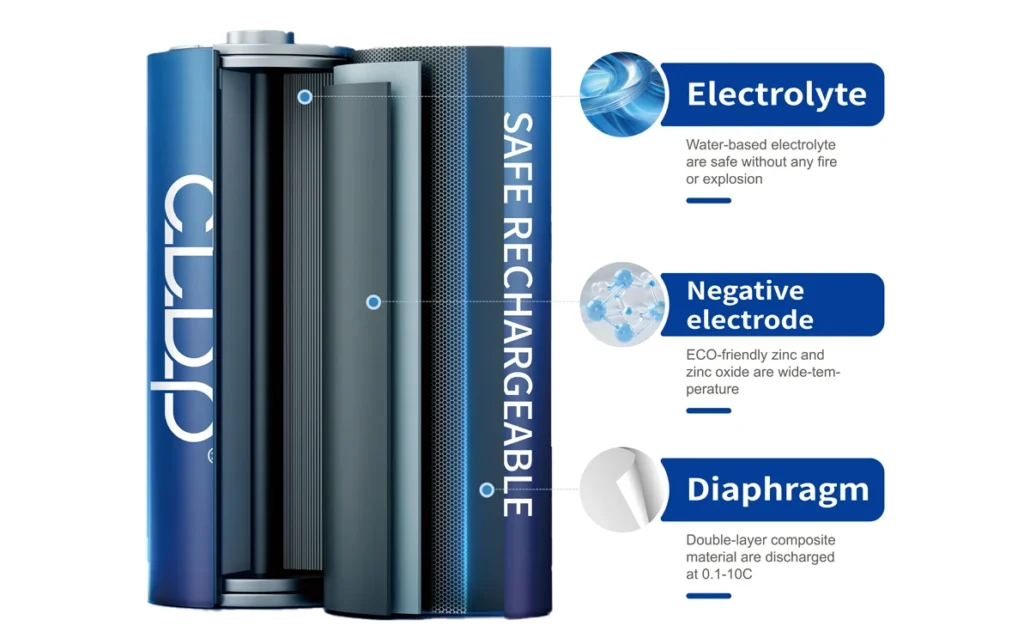Lithium USB rechargeable batteries, which are lithium-ion batteries or lithium polymer batteries that can be charged through a USB interface, are widely used in modern electronic devices due to their portability and high efficiency. The following are the main advantages and disadvantages of USB rechargeable lithium batteries.
Advantage
High energy density
Lightweight design: Compared to traditional nickel hydrogen or nickel cadmium batteries, lithium-ion batteries have higher energy density and can store more electricity in a smaller volume and weight, making them ideal for portable devices.
No memory effect
Flexible use: Unlike nickel cadmium batteries, which have a “memory effect,” users can partially charge lithium batteries at any time without affecting their long-term performance, simplifying their usage habits.
Low self discharge rate
Long term storage: Even when not in use, lithium batteries have a slower rate of battery loss, making them suitable for long-term storage without worrying about rapid depletion of power.
Fast charging support
Shortening waiting time: Modern USB rechargeable lithium batteries support fast charging technology, which can charge a large amount of power to the device in a short period of time, greatly facilitating users.

Long cycle life
Strong durability: High quality lithium-ion batteries can withstand hundreds or even thousands of charge and discharge cycles without significant capacity loss, extending the product’s service life.
Built in protection circuit
Higher safety: Most USB rechargeable lithium batteries are equipped with multiple protection mechanisms such as overcharging, overdischarging, and short circuits to prevent potential safety hazards such as fire or explosion.
Disadvantage
High cost
Initial investment is relatively large: Compared to disposable alkaline batteries or other types of rechargeable batteries, the purchase cost of USB rechargeable lithium batteries is usually higher, although it may be more economical in the long run.
Security risks
Possible thermal runaway: If lithium batteries are physically damaged, overheated, or improperly used, thermal runaway may occur, leading to the risk of fire or explosion. Therefore, it is very important to handle and choose high-quality products correctly.
Dependent on protective circuits: Although built-in protective circuits improve safety, if these circuits fail, it may lead to dangerous situations.
Temperature sensitivity
Poor performance under extreme conditions: Lithium batteries can be affected in very low or very high temperature environments, especially in cold environments where serious power outages may occur.
Aging issue
Capacity decreases over time: Even high-quality lithium batteries will gradually age over time, resulting in a continuous decrease in maximum capacity. Even in non use, this aging process will not stop.
In summary, USB rechargeable lithium batteries have performed well in many application scenarios due to their high energy density, convenience, and long lifespan. However, considering cost, safety, and environmental factors, users should carefully evaluate their own needs when making purchases and prioritize brands with reliable quality and good reputation. In addition, proper usage and proper maintenance are also key to ensuring the safety and efficiency of lithium batteries.




